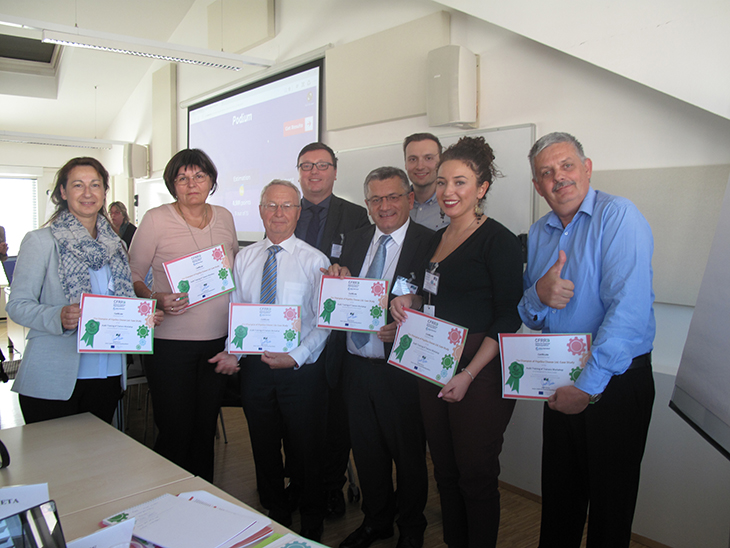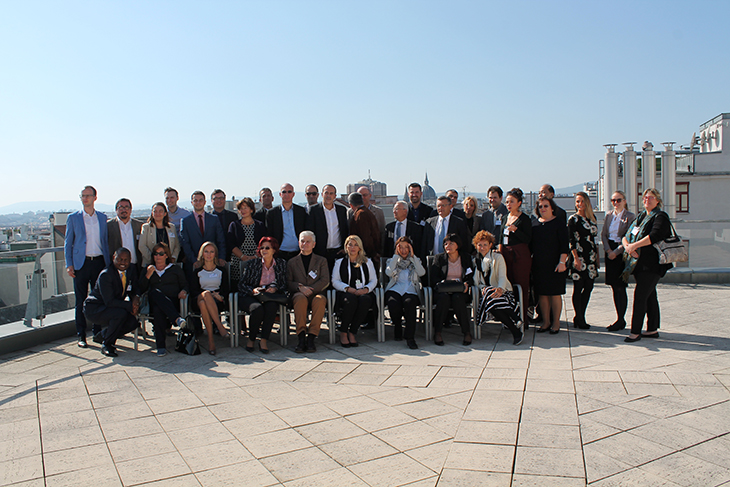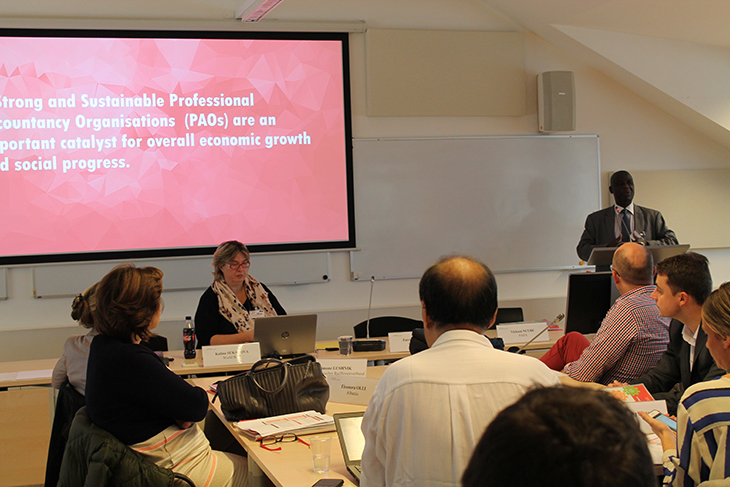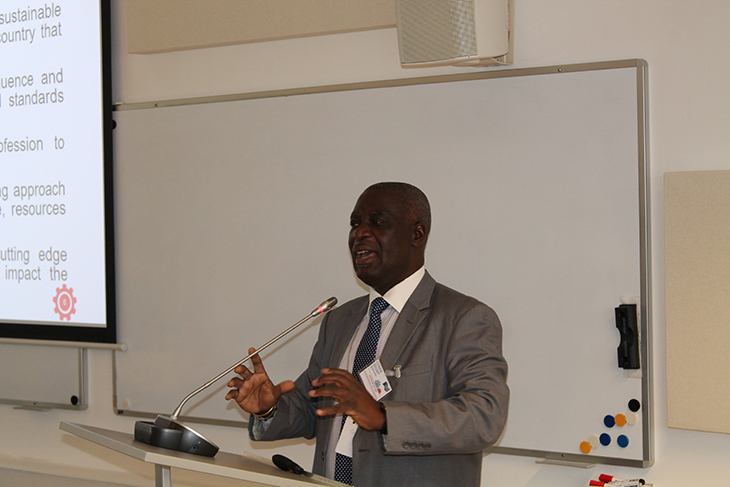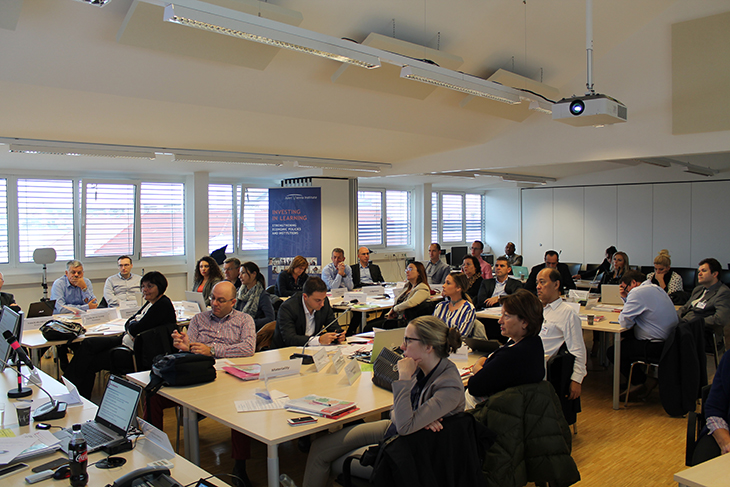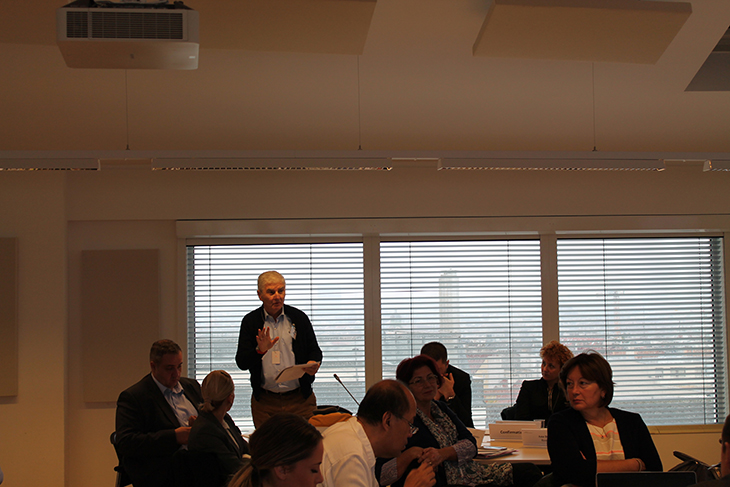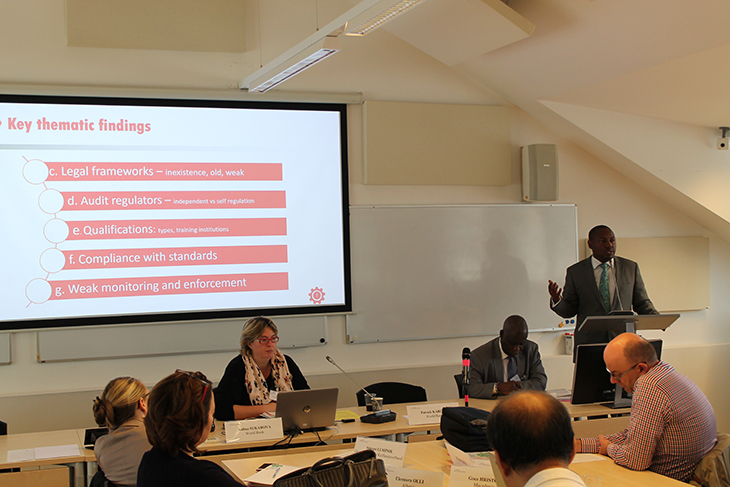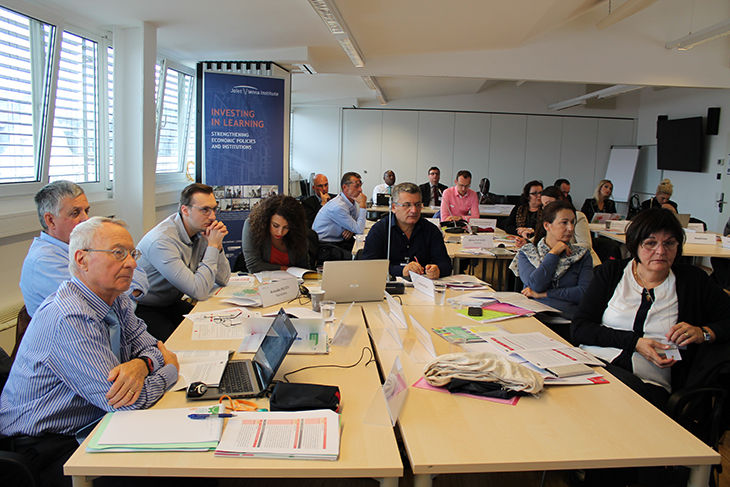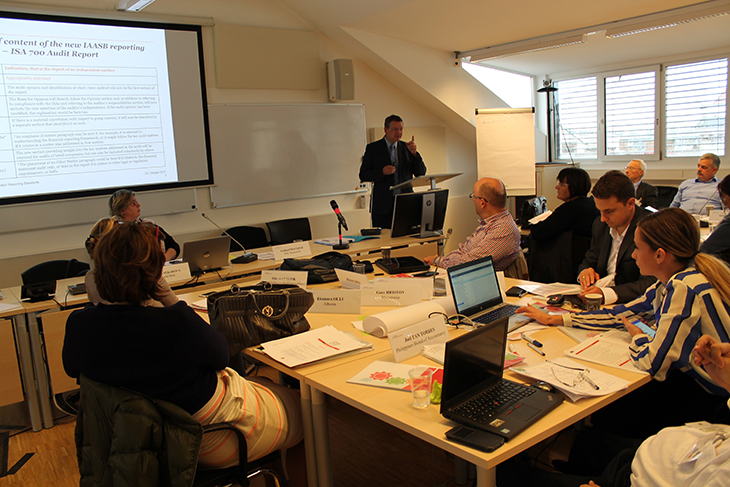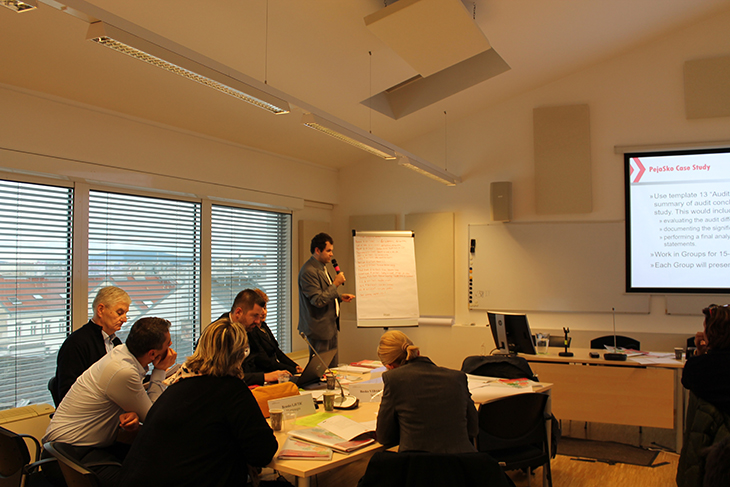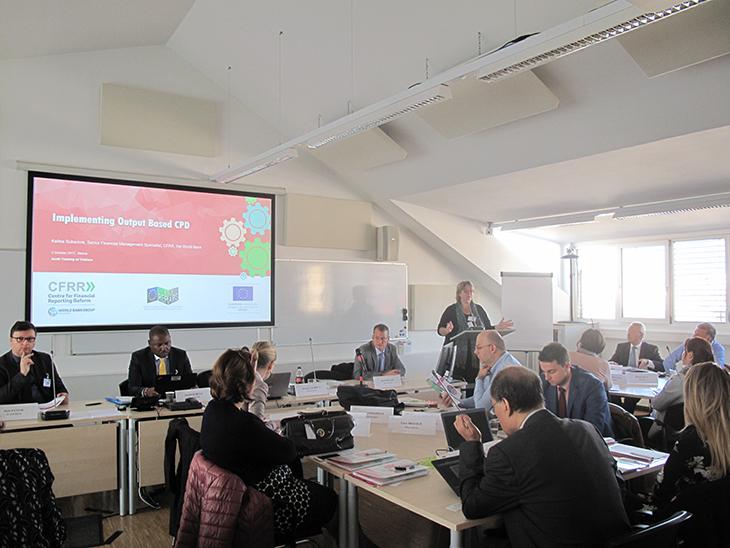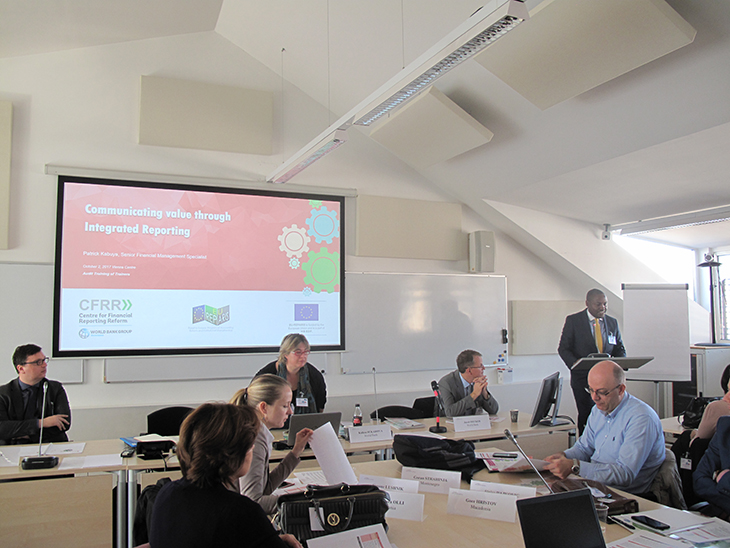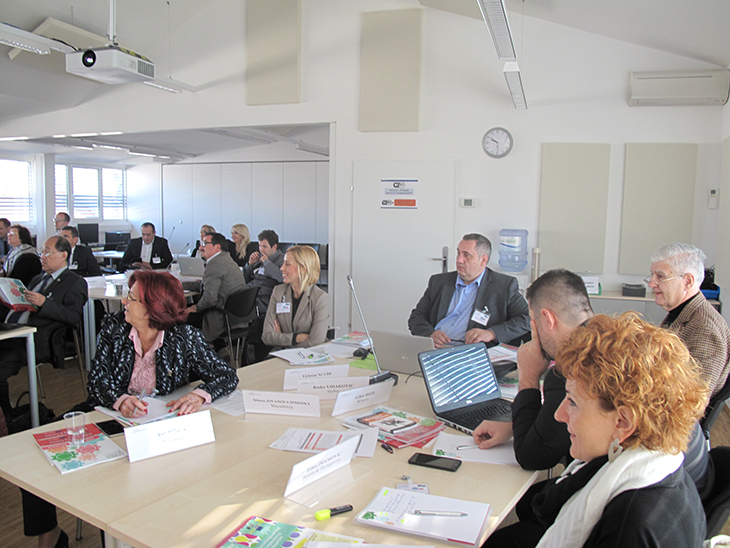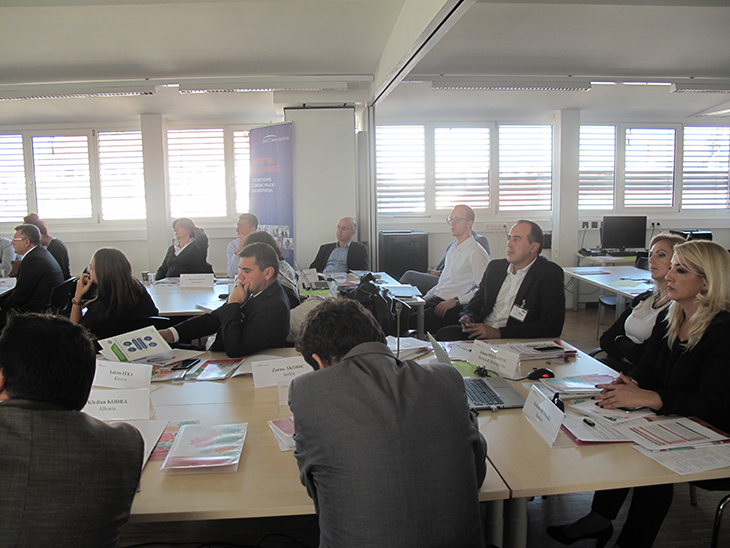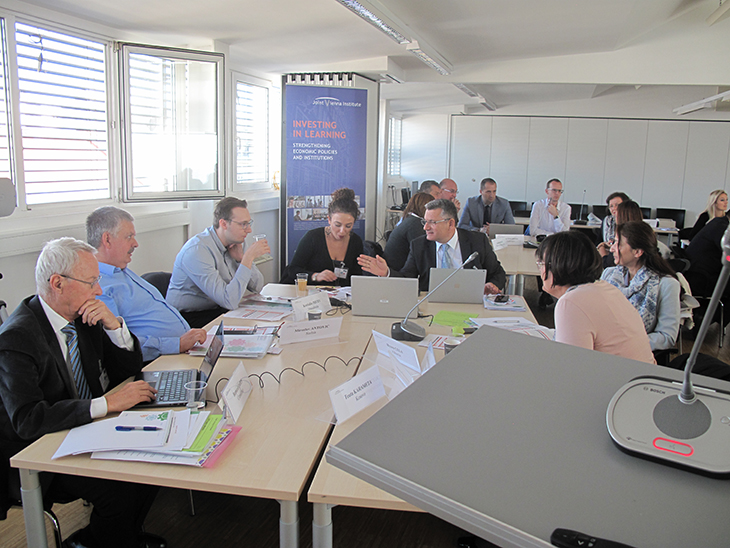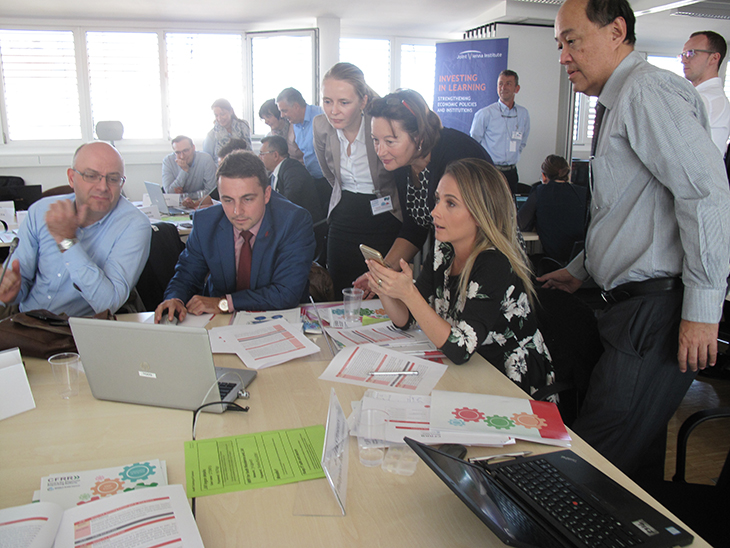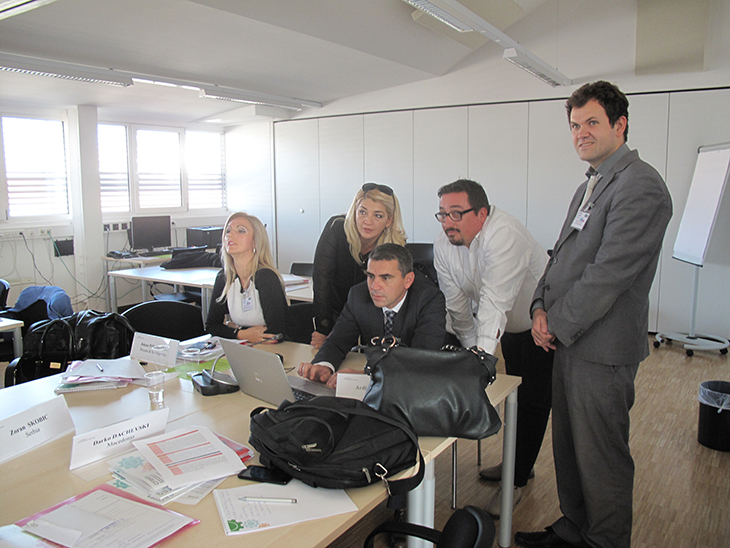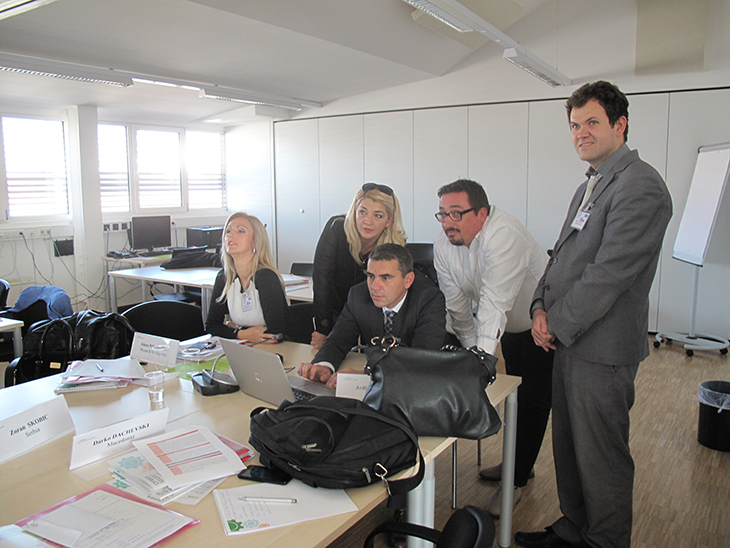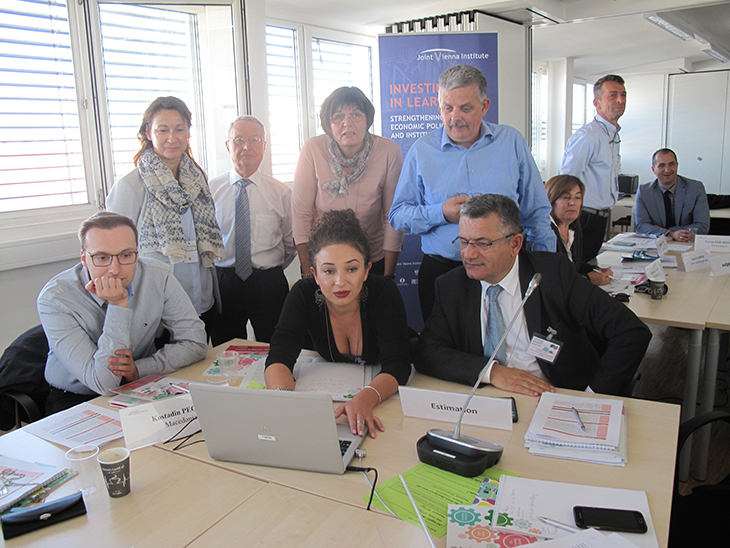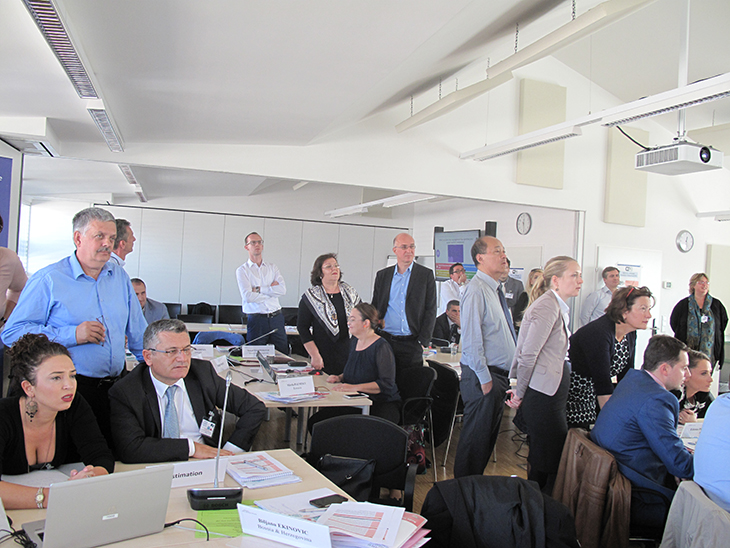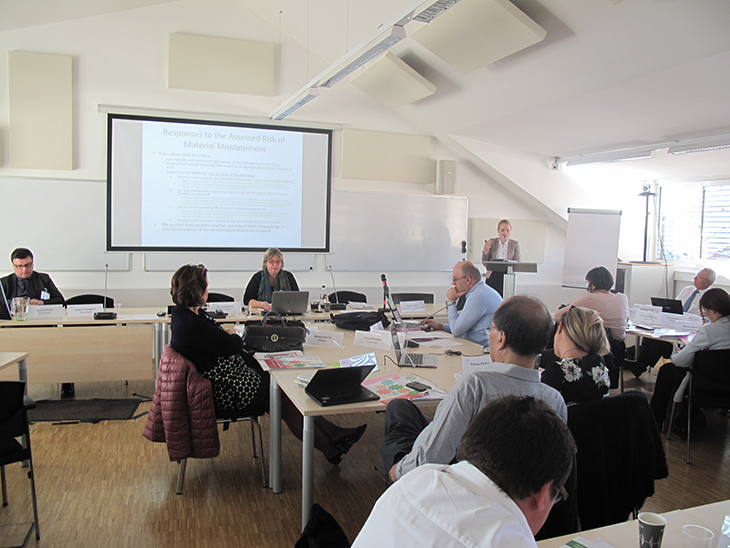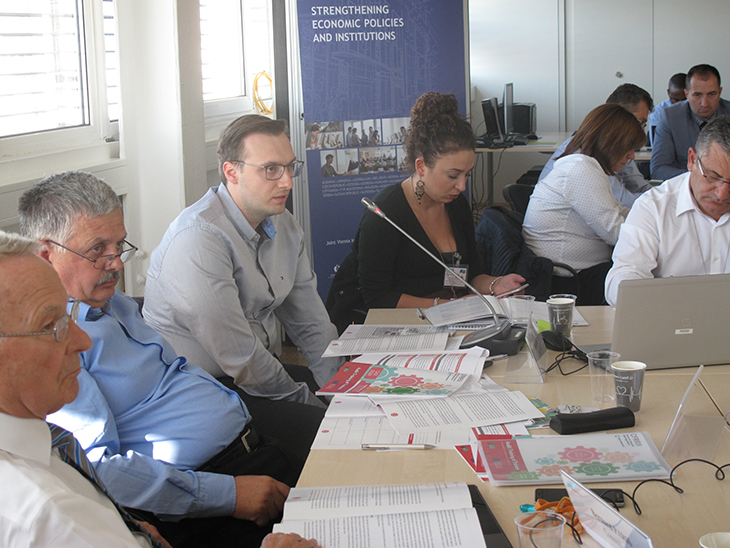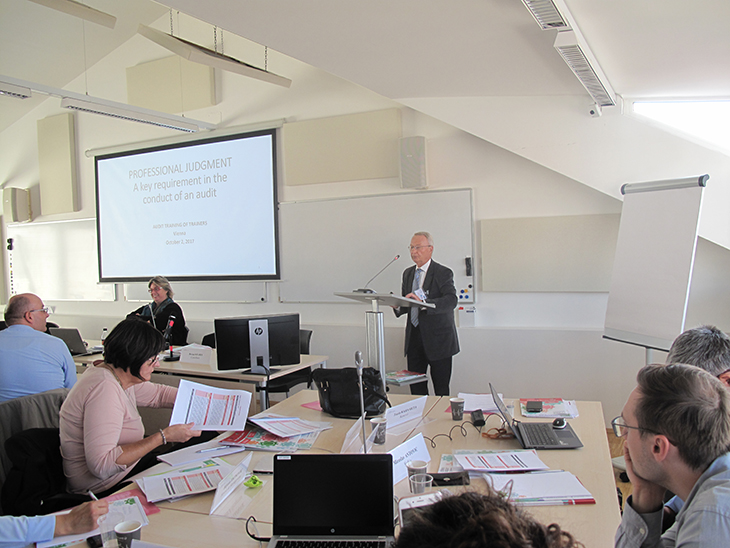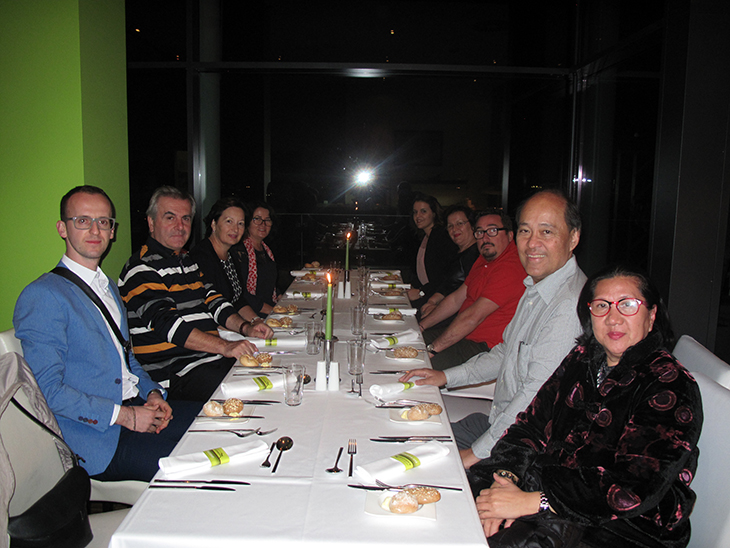The overall aim of the series is to increase the audit profession's capacity to deliver high-quality training and continuing professional development (CPD) programs based on the Standards of the International Auditing and Assurance Standards Board® (IAASB®). In particular, the workshop series focuses on the needs and challenges of Small and Medium-sized Practices (SMPs) to implement International Standards. The series is conducted with the support of the International Federation of Accountants® (IFAC®).
This workshop is the last in the series covering the Fundamentals module and focused on the final stage of the audit process: Audit Conclusion and Reporting.
Regional integration of PAOs and the role of the Pan African Federation of Accountants (PAFA) supporting the accountancy profession in Africa
One of the aims of the workshop was to discuss experiences from Africa relating to regional integration of Professional Accountancy Organizations (PAOs) and the role of regional PAOs while supporting the accountancy profession. Welcoming participants, Jarett Decker, Head of the CFRR, opened the workshop and outlined some of the common benefits of PAO regional integration, including delivering a stronger voice while supporting important reforms critical for accountability, sound financial management, and good corporate governance, achieving common education requirements and mutual recognition of qualifications, sharing resources, achieving economy of scale as well as many other synergies.
Participants benefited from a key note address on the role of the Pan African Federation of Accountants (PAFA) as a regional organization supporting the accountancy profession in Africa delivered by Mr. Vickson Ncube, Chief Executive Officer of PAFA. Mr. Ncube emphasized that “strong and sustainable PAOs are an important catalyst for overall economic growth and social progress.” PAFA was established in May 2011 and brings together professional accountancy organizations in the Africa Region (46 PAOs as of July 2017) with a mission to accelerate the development of the accountancy profession in Africa and strengthen the profession’s voice within the continent and globally. The Key Note Address:
- Provided an overview of PAFA and its strategic goals and visions for the future of the accountancy profession in Africa,
- Discussed key opportunities and challenges in Africa and how the accountancy profession is supporting these opportunities and private sector growth; and
- Covered the Audit quality status in Africa.
Patrick Kabuya, Senior Financial Management Specialist, the World Bank and Vickson Ncube, PAFA CEO discussed advantages of regional integration among the profession using Africa and PAFA as the case study. The workshop also provided sessions that discussed the status of the accountancy profession in Africa and what PAFA and the World Bank are doing in Africa to help strengthen the profession.
Integrated Reporting and Output Based CPD
The topic of integrated reporting was covered by Patrick Kabuya, Senior Financial Management Specialist, the World Bank. In the last decade, ideas and concepts originally emerging in South Africa, such as corporate reporting on financial and non-financial information in a single document, sustainability and integrated reporting, have grown worldwide. These integrated thinking concepts aim to communicate in a single report a holistic picture about an entity and where value is created. Large corporate entities from the private sector have lead the agenda, however more recently these concepts are explored by public companies and even SMEs. This session discussed the “why” of Integrated Reporting, history, main players, concepts, and presented practical examples of how integrated reporting is being implemented in South Africa.
Further, Kalina Sukarova, Senior Financial Management Specialist, CFRR, discussed lifelong learning and output based CPD. More recently, outcome based CPD schemes are attracting the attention of policy makers, regulators, standard setters, and professional bodies. These approaches seek to measure outputs, gains, and achieve genuine learning and professional improvement. This session highlighted a few tips for PAOs and other stakeholders aiming to implement output based CPD approaches and discussed the importance of the learner centered training courses, such as the Audit Training of Trainers program, as a more effective learning experiences.
Accounting Estimates, Professional Judgement and the New Auditor Reporting Standards
Simone Luschnik, Audit Quality Specialist, Österreichischer Raiffeisenverband (ÖRV), delivered a session on the requirements of ISA 540 Auditing Accounting Estimates, Including Fair Value Accounting Estimates, and Related Disclosures. Relevant concepts were covered, such as complexity, the need for auditor’s skepticism, management use of judgements and estimation uncertainty. The speaker also discussed the considerations for smaller entities when auditing estimates.
Bernard Paris, French Statutory Auditor and Audit Practice Consultant discussed professional judgment as a key skill that auditors are required to develop with experience, practice, and training. This session explored professional judgment in the audit context, and focused on the elements of the effective judgment process including potential judgment tendencies, traps, and biases.
Gerhard Prachner, Audit Partner at PwC Österreich GmbH spoke about the revised standards on auditor reporting including the requirements of the new standard, ISA 701 Communicating Key Audit Matters in the Independent Auditor's Report. The session provided many practical reporting examples and pointed out the appropriate use of additional paragraphs not affecting the opinion, such as Emphasis of Matter Paragraphs and Other Matter Paragraphs in the Independent Auditor's Report.
Going Concern
Participants engaged in a mini case study that built further on the scenario of the case study PejaSkop and focused on Going Concern Judgements. The aim of the case study is to enhance the intellectual and analytical skills necessary for SMP practitioners to make sound going concern judgments in a fast-developing business environment. Participants were required to obtain evidence, document, and conclude on the appropriateness of the going concern assumption in a small client context at both planning and closing stages of the audit. The exercise also aimed to build awareness that SMPs face specific challenges when auditing the going concern in their SME clients caused by the size of the entity and that it is critical for these practitioners to develop a wide range of analytical and intellectual skills including abilities to apply sound professional judgement to reach well-reasoned conclusions based on facts.
The integrated audit case study “PejaSko” and the PejaSko quiz
The workshop featured practical examples based on the integrated client case “PejaSko” and participants worked in groups and developed audit procedures for accounting estimates and performed finalization and review procedures. Divided into groups, participants engaged in the PejaSko quiz. The most successful group was awarded the Audit ToT certificate: “The Champion of PejaSko Cheese Ltd. Case Study”.
Reconnecting and exchanging knowledge
The workshop featured many practical activities aimed at developing participating trainers' soft skills and as always, provided a forum for participants to reconnect, discuss CPD challenges and available resources, and identify common solutions. The next workshop in the series will take place in March, 2018 at the Joint Vienna Institute (JVI).
Disclaimer: This webpage was created and maintained with the financial support of the European Union. Its contents are the sole responsibility of CFRR and do not necessarily reflect the views of the European Union.
